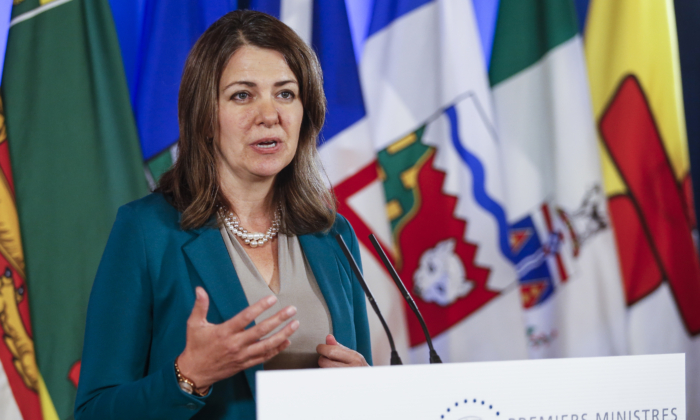Sex education has been a contentious issue in Canada for almost a decade, with school boards increasingly incorporating gender ideology into their curriculums.
If passed, Alberta would become the first province in Canada to implement an opt-in policy for sex education and gender identity in schools.
While the specifics of how schools teach sexuality and gender identity vary by school board, many provinces have policies allowing parents to request exemptions or alternative learning methods for sex education.
Alberta
Sex education is mandatory in Alberta from Grade 4 to Grade 9, but parents can currently exempt their child from instruction.
If Premier Danielle Smith’s legislation is approved, parental approval would be required for children to participate in any sex- or gender-related instruction.
Parents must be informed and provide consent for students under 16 to change their pronouns in Manitoba. The education ministry in Manitoba emphasizes parental involvement and feedback on sex education, stating that all sex education-related programming information must be sent to parents before it is taught. Parents can choose between school-based or alternative delivery of the content, with the right to opt for alternative delivery if the content conflicts with family, religious, and/or cultural values.
In Quebec, sex education is compulsory for elementary and secondary students as part of the Culture and Citizenship program. Parents must prove that the curriculum could cause psychological harm to their child or infringe on the Canadian Charter of Rights and Freedoms if they believe their child should be exempted from a portion of the curriculum.
New Brunswick’s Policy 713 does not mention opt-out options for any sexual education related curriculum. The province is reviewing its sex education curriculum, with discussions about introducing an opt-out option. Parents in New Brunswick have the right to choose what their children are exposed to, as emphasized by Education Minister Bill Hogan and Premier Blaine Higgs.
Nova Scotia integrates sexual health education concepts into various subjects throughout the school year. There is no opt-out option offered to parents in Nova Scotia, although the healthy living course is compulsory for Grade 7 to 9 students.
Prince Edward Island informs parents before teaching topics on gender identity or sexual health in the classroom. Parents are encouraged to speak to their child’s teacher about curriculum concerns, as there are no opt-out forms available. Schools are encouraged to expand upon the formal curriculum with supplementary activities, and parents are given advance notice of such events.
Newfoundland does not offer opt-out options in its curriculum for students, but parents can choose to remove their children from school or classes in consultation with the teacher and school administration. The province is currently updating its health education framework for Grades 4 through high school.
In the Northwest Territories, there is no formal policy for opting out of the sex education curriculum. Education bodies have the authority to make policy decisions for schools within their jurisdiction, which may include sending home permission slips/consent forms for parents to opt out of the programming if warranted.
Yukon follows the British Columbia curriculum with adaptations to include Yukon content. There is no opt-out policy for parents, but the Department of Education encourages parents to discuss curriculum topics with their child’s teacher or school principal. Parents can arrange for alternative instruction for sensitive topics, but students are still expected to demonstrate knowledge of the sex ed curriculum.
Internationally, sex education has become controversial in various countries, not just in Canada. Parents in both the United States and the United Kingdom have expressed concerns about age-inappropriate sexual content and discussions in the classroom.
United States
Sex education regulations in the U.S. vary from state to state, with most states requiring parental consent for sex education, typically through an opt-out option. According to a sex-ed policy map, 37 states and Washington DC have an opt-out policy, while Nevada, Utah, North Carolina, and Mississippi have an opt-in policy. Some states have a combination of both, while others have no specific policy regarding parental consent. Additionally, 32 states mandate that all sex education materials be made available for parental review.
In Idaho, a school district banned classroom discussions on gender identity, while in Maryland, parents were unable to opt their children out of lessons featuring LGBT content in the Montgomery County Public Schools district.
United Kingdom
In the UK, there is a uniform approach to sex education curriculum across schools. The Relationships, Sex and Health Education (RSHE) curriculum was recently reviewed to address concerns about age-inappropriate content. The revamped curriculum focuses on protecting pupils from being introduced to topics they may not understand properly and emphasizes parental involvement and advance access to lesson plans.
While RSHE is mandatory in all state-funded schools in the UK, parents have the option to withdraw their child from some or all of the sex education portion of the teachings, although relationships education is compulsory. Education Secretary Gillian Keegan emphasized parents’ right to know what their children are being taught and to see the materials used in lessons. Please rephrase this statement.
Source link




